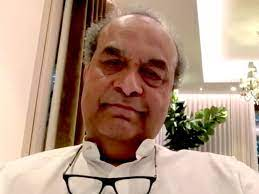
Table of Contents
Background on Hindenburg Research
Hindenburg Research was founded by Nathan Anderson in 2017 and has gained notoriety for its investigative reports on companies it accuses of fraud, mismanagement, or financial irregularities. The firm typically takes a short position on the stock of the companies it investigates, meaning it stands to profit if the stock price falls after the publication of its reports. Hindenburg’s name is a reference to the Hindenburg disaster, symbolizing its intent to expose corporate malfeasance.
One of Hindenburg’s most high-profile cases was its 2020 report on electric vehicle manufacturer Nikola, which led to a significant drop in Nikola’s stock price and ultimately resulted in regulatory investigations and the resignation of its founder. The firm has since been involved in multiple high-profile cases, often stirring significant market reactions.
The Allegations Against the Adani Group
The Adani Group, a multinational conglomerate headquartered in India, with interests in sectors like energy, infrastructure, logistics, and agribusiness, became the target of Hindenburg Research in early 2023. Hindenburg accused the group of stock manipulation and accounting fraud, a claim that sent shockwaves through Indian financial markets. The Adani Group categorically denied these allegations, labeling them as baseless and aimed at maligning the reputation of one of India’s most successful enterprises.
The initial report by Hindenburg led to a massive sell-off in Adani Group stocks, eroding billions of dollars in market value. Despite the Group’s denials and efforts to reassure investors, the damage to its reputation and financial standing was significant.
Mukul Rohatgi’s Response
Mukul Rohatgi, who has been a legal advisor to the Adani Group, responded robustly to the fresh allegations made by Hindenburg Research. He dismissed Hindenburg’s report, stating that it has “no credibility at all.” Rohatgi argued that Hindenburg’s business model, which profits from the decline in stock prices following its reports, inherently conflicts with the principles of objective and fair research. According to him, the firm’s primary motive is profit, not uncovering the truth, which compromises its integrity.
Rohatgi further emphasized that the Adani Group’s operations are fully compliant with Indian laws and regulations. He underscored that the conglomerate has been transparent in its dealings and that the allegations made by Hindenburg are not supported by any substantive evidence. Rohatgi’s remarks were intended to restore confidence among investors and stakeholders, urging them to look beyond the sensational claims made by a short-selling firm with vested interests.
The Legal and Market Implications
Rohatgi’s dismissal of Hindenburg’s credibility is part of a broader narrative surrounding the impact of short-seller reports on global markets. Such reports can cause severe volatility, leading to significant financial losses for companies and their investors, irrespective of the validity of the claims made. In many cases, companies targeted by short-sellers have launched legal battles, accusing these firms of market manipulation and defamation.
In India, the legal environment is still evolving when it comes to dealing with the impact of short-seller reports. Rohatgi’s comments highlight the tension between protecting market integrity and defending companies against what they perceive as malicious attacks. If the Adani Group decides to take legal action against Hindenburg, it could set a precedent in Indian law, potentially influencing how similar cases are handled in the future.
The Broader Context: Trust and Transparency in Markets
The controversy surrounding Hindenburg and the Adani Group raises important questions about trust and transparency in global markets. On one hand, short-sellers like Hindenburg argue that they play a crucial role in exposing fraud and protecting investors from companies that engage in unethical practices. On the other hand, companies and their supporters, like Rohatgi, contend that these reports often lack credibility and are motivated by profit, rather than a genuine concern for the truth.
This debate is not new, but it has gained fresh urgency in an era where information spreads rapidly through social media and other digital platforms. The impact of a short-seller report can be immediate and profound, affecting not just stock prices but also the reputations and livelihoods of thousands of employees, shareholders, and stakeholders associated with the targeted company.
Reactions from the Business Community
Rohatgi’s remarks have resonated with a segment of the business community that views short-selling firms like Hindenburg with suspicion. Critics argue that the tactics employed by such firms are predatory and can destabilize markets, especially in emerging economies like India, where companies may be more vulnerable to such attacks.
However, there is also a counter-argument that without short-sellers, many fraudulent activities might go unchecked, leading to larger crises down the road. The challenge lies in striking a balance between allowing legitimate financial research and protecting companies from unfounded or exaggerated claims.
Conclusion: The Ongoing Battle for Credibility
The dispute between Hindenburg Research and the Adani Group, and by extension Mukul Rohatgi’s sharp critique of Hindenburg’s credibility, is emblematic of a larger struggle over who controls the narrative in global markets. As long as short-sellers continue to wield significant influence, companies will need to be increasingly vigilant in maintaining transparency and safeguarding their reputations.
For Rohatgi, the defense of the Adani Group is not just about one company; it’s about pushing back against what he perceives as an unfair and unaccountable practice that can have damaging consequences for businesses and economies alike. Whether Hindenburg’s allegations will stand the test of time remains to be seen, but for now, the debate over credibility and accountability in financial markets is far from settled.
In the coming months, the outcomes of any legal actions taken by the Adani Group or others in similar situations will likely influence how such matters are approached in the future. As markets become more interconnected and information flows more freely, the need for robust, fair, and transparent financial research will only grow, making the stakes in this battle for credibility higher than ever.









